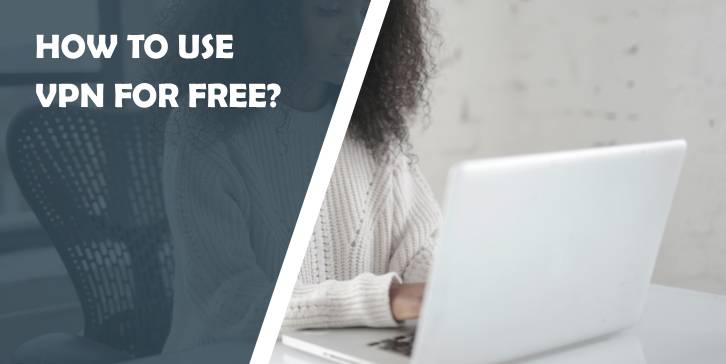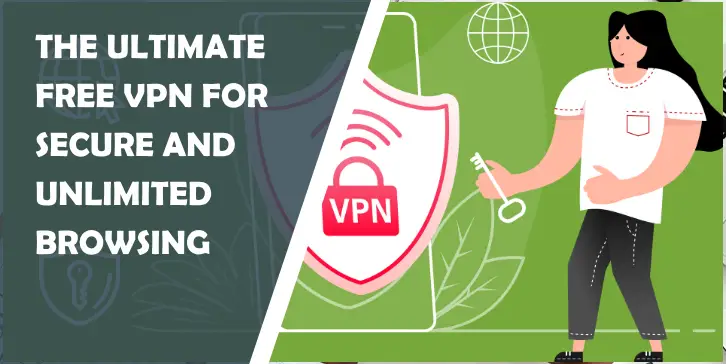In an age where online privacy and security are paramount, Virtual Private Networks (VPNs) have become essential tools for internet users. VPNs encrypt your internet connection and route it through secure servers, protecting your data from hackers, government surveillance, and other prying eyes. While premium VPN services offer advanced features and robust security, there are also ways to use VPNs for free. In this article, we’ll explore how to use VPNs for free, the benefits and limitations of free VPNs, and tips for choosing the right one.

Understanding Free VPNs
Free VPN services offer basic VPN functionality at no cost to users. These services typically generate revenue through advertising, data mining, or offering premium upgrades. While free VPNs can provide a level of privacy and security, they often come with limitations such as data caps, slower speeds, and fewer server locations compared to premium VPNs.
How to Use VPNs for Free
There are several ways to use VPNs for free, including:
1. Free VPN Trials: Many premium VPN providers offer free trials of their services for a limited time, allowing users to test their features and performance before committing to a subscription. While these trials may offer full access to premium features, they typically expire after a set period, after which users must pay to continue using the service.
2. Freemium VPNs: Some VPN providers offer freemium models, where users can access basic VPN functionality for free, with the option to upgrade to a premium subscription for additional features and benefits. Freemium VPNs often come with limitations such as data caps, slower speeds, and fewer server locations, but they can still provide a level of privacy and security for basic internet browsing.
3. Browser Extensions: Certain web browsers offer built-in VPN functionality or allow users to install VPN extensions for free. These browser-based VPNs encrypt your browser traffic and protect your privacy while browsing the web. While browser VPNs may offer limited functionality compared to standalone VPN clients, they can still be useful for basic internet privacy and security.
4. Free VPN Services: There are also standalone free VPN services available that offer basic VPN functionality at no cost to users. These free VPNs may come with limitations such as data caps, slower speeds, and fewer server locations, but they can still provide a level of privacy and security for basic internet browsing and accessing geo-restricted content.

Benefits of Using VPNs for Free
Using VPNs for free offers several benefits, including:
1. Privacy Protection: VPNs encrypt your internet connection, preventing hackers, government surveillance agencies, and ISPs from monitoring your online activities.
2. Security: VPNs provide a secure tunnel for your internet traffic, protecting your data from interception and cyber threats such as malware and phishing attacks.
3. Access to Geo-Restricted Content: VPNs allow you to bypass geo-restrictions and access region-locked content, such as streaming services, social media platforms, and websites, from anywhere in the world.
4. Anonymity: VPNs mask your IP address and location, preserving your anonymity and privacy online.
Limitations of Free VPNs
While free VPNs offer benefits, they also come with limitations, including:
1. Data Caps: Many free VPNs impose data caps or bandwidth limits, restricting the amount of data you can transfer over the VPN each month.
2. Slower Speeds: Free VPNs often have slower connection speeds compared to premium VPNs, due to the limited number of servers and higher user traffic.
3. Fewer Server Locations: Free VPNs typically offer fewer server locations compared to premium VPNs, limiting your options for bypassing geo-restrictions and accessing content from different regions.
4. Limited Features: Free VPNs may lack advanced features and functionality, such as kill switches, split tunneling, and dedicated IP addresses, which are commonly found in premium VPN services.
Tips for Choosing the Right Free VPN
When choosing a free VPN, consider the following factors:
1. Reputation: Look for reputable VPN providers with a track record of providing reliable and secure services.
2. Security: Ensure the VPN uses strong encryption protocols and follows best practices for protecting user data and privacy.
3. Data Caps and Speed: Check for any data caps or bandwidth limits imposed by the VPN, as well as the expected connection speeds.
4. Server Locations: Consider the number and diversity of server locations offered by the VPN, especially if you need to access content from specific regions.
5. Privacy Policy: Review the VPN’s privacy policy to understand how your data is collected, stored, and used.
Using VPNs for free can provide a level of privacy and security for basic internet browsing and accessing geo-restricted content. While free VPNs come with limitations, such as data caps, slower speeds, and fewer server locations, they can still be useful tools for protecting your online privacy and security. By understanding how to use VPNs for free, evaluating the benefits and limitations, and choosing the right VPN provider, you can enjoy a safer and more private browsing experience on the internet.





Comments are closed.